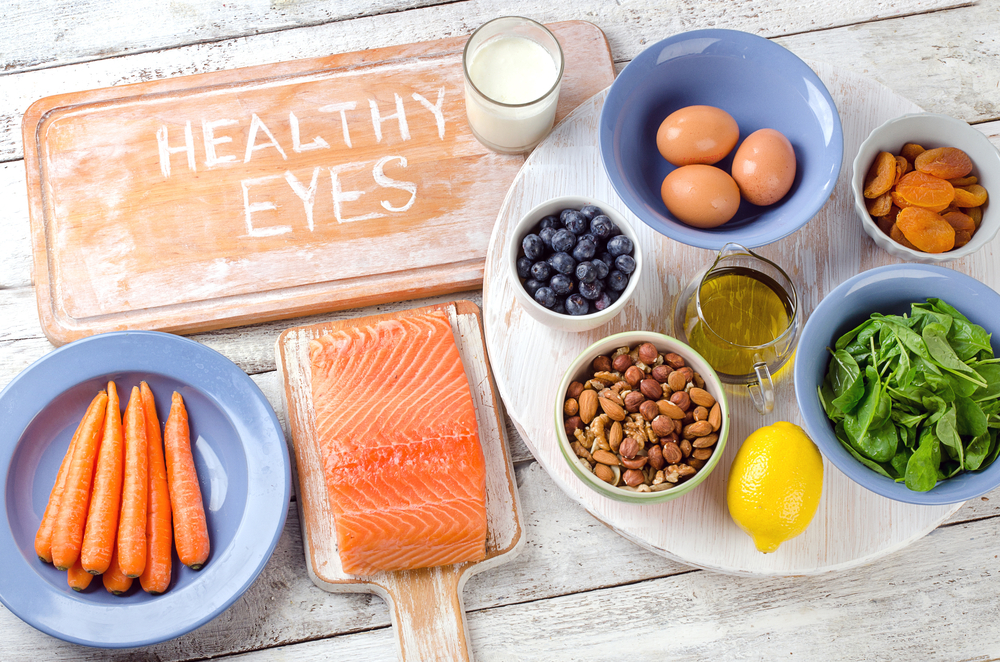
Proper nutrition plays a vital role in maintaining good overall health, and the eyes are no exception. The eyes require a variety of nutrients to function optimally and stay healthy. Many eye conditions can be influenced by our diet.
Common Eye Conditions and Their Connection to Nutrition
Cataracts, one of the leading causes of vision loss worldwide, are characterized by the clouding of the eye's lens. Research suggests that certain nutrients, such as vitamin C, vitamin E, and carotenoids like lutein and zeaxanthin, may help reduce the risk of cataracts. These nutrients act as antioxidants, protecting the eyes from free radicals that can damage the lens.
Age-related macular degeneration (AMD) is another common eye condition that affects the central part of the retina, called the macula. A diet rich in antioxidants, omega-3 fatty acids, and lutein and zeaxanthin can help reduce the risk of AMD and slow its progression. Foods such as leafy green vegetables, fish, nuts, and citrus fruits are excellent sources of these nutrients.
Dry eyes, a condition characterized by insufficient tear production or poor tear quality, can be exacerbated by a lack of certain nutrients. Omega-3 fatty acids, found in fatty fish like salmon and trout, can help reduce inflammation and improve tear production. Additionally, staying hydrated and consuming foods high in vitamin A, such as carrots and sweet potatoes, can support overall eye health and alleviate dryness.
Key Nutrients for Maintaining Healthy Eyes
A well-rounded diet that includes a variety of nutrient-rich foods is crucial for maintaining healthy eyes. Some key nutrients that play a significant role in eye health include:
Vitamin A
Vitamin A is essential for good vision, as it helps maintain the integrity of the cornea, the transparent outer layer of the eye. It also contributes to the production of rhodopsin, a pigment that enables the eyes to adjust to dim light. Foods rich in vitamin A include carrots, sweet potatoes, spinach, and liver.
Vitamin C
Vitamin C is a powerful antioxidant that helps protect the eyes from damage caused by harmful free radicals. It also supports the health of blood vessels in the eyes. Citrus fruits, strawberries, bell peppers, and broccoli are excellent sources of vitamin C.
Vitamin E
Vitamin E is another antioxidant that helps protect the eyes from oxidative stress. It can be found in foods like almonds, sunflower seeds, spinach, and avocados.
Lutein and Zeaxanthin
Lutein and zeaxanthin are carotenoids that accumulate in the retina and help filter out harmful blue light. They also act as antioxidants and protect the macula from damage. Leafy green vegetables, such as kale, spinach, and broccoli, are rich sources of these nutrients.
Omega-3 Fatty Acids
Omega-3 fatty acids play a crucial role in maintaining eye health. They help reduce inflammation and support proper tear production, which is essential for preventing dry eyes. Fatty fish like salmon, mackerel, and sardines are excellent sources of omega-3 fatty acids.
Taking Care of Your Eyes through Proper Nutrition
Proper nutrition plays a crucial role in maintaining healthy eyes and reducing the risk of common eye conditions. Including a variety of nutrient-rich foods in your diet, such as leafy green vegetables, citrus fruits, fatty fish, nuts and seeds, and carrots, can provide the necessary vitamins, minerals, and antioxidants for optimal eye health. By taking care of your eyes through proper nutrition, you can enjoy good vision and eye health for years to come.
To learn more on the link between nutrition and eye health, visit Wellesley Hills Eye Care at our Wellesley, Massachusetts office. Please call (781) 501-9120 to schedule an appointment today.








